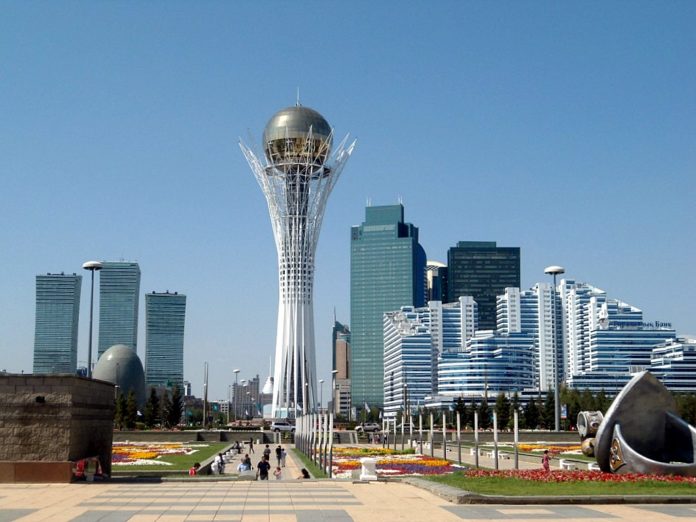Author: Zhanar Aitzhanova, Ambassador of Kazakhstan to the Swiss Confederation and Permanent Observer to the United Nations Office at Geneva.
On June 9, the presidential election will take place in Kazakhstan. This is a very important moment, as the head of state chosen by the people will be called upon to guide the country and define the tasks and priorities for the government, which may have an impact not only within the country but also beyond. It will also be a question of managing and clarifying any possible uncertainty regarding the country's future after the political transition.
The election is a time to step back, take stock of what has been achieved and set new goals and priorities. We believe that Kazakhstan's successful position in the world is due in no small part to its "multi-pronged" foreign policy and pragmatism. These have enabled the country to become a key player in important strategic initiatives ranging from Eurasian economic integration to enhanced cooperation with the EU and the strategic partnership with the United States.
Moreover, in the fields of religious peace, harmony and respect between different ethnic groups, our country is at the forefront both globally and regionally. This serenity and open-mindedness have not gone unnoticed by the world, as illustrated by the Congress of Leaders of World and Traditional Religions organized by Kazakhstan, and the Astana Process as a platform for talks on Syria.
Upcoming presidential election
Kazakhstan has taken concrete steps to improve gender equality and promote the role of women in business and politics. We are now seeing the fruits of our efforts. I can proudly point out that the list of seven candidates includes the first female presidential candidate, Daniya Yespayeva of the Aq Jol party.
Another aspect of elections that the experts addressed was the competitiveness and fairness of the electoral process. This is understandable, given that the Central Asian region as a whole is still developing the democratic institutions and mechanisms needed to guarantee fair and open elections.
Kazakhstan has always welcomed observers and their constructive contributions during previous elections. This time we estimate that over 1,000 international observers from ten international organizations and foreign countries will travel to Kazakhstan for the election. The government has officially invited the Office for Democratic Institutions and Human Rights (ODIHR), the Organization for Security and Cooperation in Europe (OSCE), the Commonwealth of Independent States and other organizations. The latter are currently carrying out their missions in the country.
Economic partnerships
The road to success lies in economic diversification, social progress and strengthening ties with our economic partners. In itself, theSilk Road Initiative represents an excellent opportunity to make full use of our transit capacity to transform Kazakhstan from a landlocked to a land-linked country, in other words, to make the landlocked country a country linked to the rest of the world.
Together with our partners, we are investing heavily in the construction of a new trade route that will cut freight transport times from Asia to Europe by a factor of three. As a result, our country is now seen as an important gateway to the Chinese market.
As a newly-acceded member of the World Trade Organization (WTO), Kazakhstan is committed to strengthening the openness of its economic policy, particularly with regard to investment trade. Kazakhstan's integration into major infrastructure networks will contribute to economic diversification through the development of important service sectors and the creation of new investment opportunities.
Privileged relations with Switzerland
At the dawn of its independence, Kazakhstan offered favorable conditions for investment, attracting nearly US$300 billion in foreign direct investment into the economy, of which Swiss companies account for a significant volume. In fact, the Swiss Confederation is now one of the top ten investors in Kazakhstan.
I'm delighted to see around 40 Swiss companies, including ABB, Sika, Nestlé and Glencore, successfully operating in our market. With bilateral trade worth US$3 billion a year and considerable prospects for future growth, Switzerland is also one of Kazakhstan's main trading partners.
There is also great potential for developing tourism between our countries. Kazakhstan could adopt Swiss experience in the development of tourism infrastructure and services. In recent years, we have seen an increasing number of students from my country studying at various Swiss hotel schools.
Increasing the flow of tourism between our countries will enrich travelers not only by letting them admire the landscape, but also by discovering each other's culture and traditions. We must always remember our true values of tolerance and preserve the harmony reflected in nomadic hospitality.
Switzerland, a modern country located in the heart of Europe, has always been recognized as a reliable partner of Kazakhstan. In 2017, we celebrated 25 years of bilateral diplomatic relations. The Interparliamentary Friendship Group was created to facilitate the exchange of views on major bilateral and global issues between our members of parliament. Switzerland contributes to the constructive dialogue on water issues in Central Asia. Kazakhstan is also a member of the Swiss group in the Bretton Woods institutions.
Our two countries are landlocked, and have had to find solutions to this problem. What we have in common is tolerance, a peaceful foreign policy, international mediation and integration based on economic pragmatism. We have every reason to be confident about the future of cooperation between our countries.


